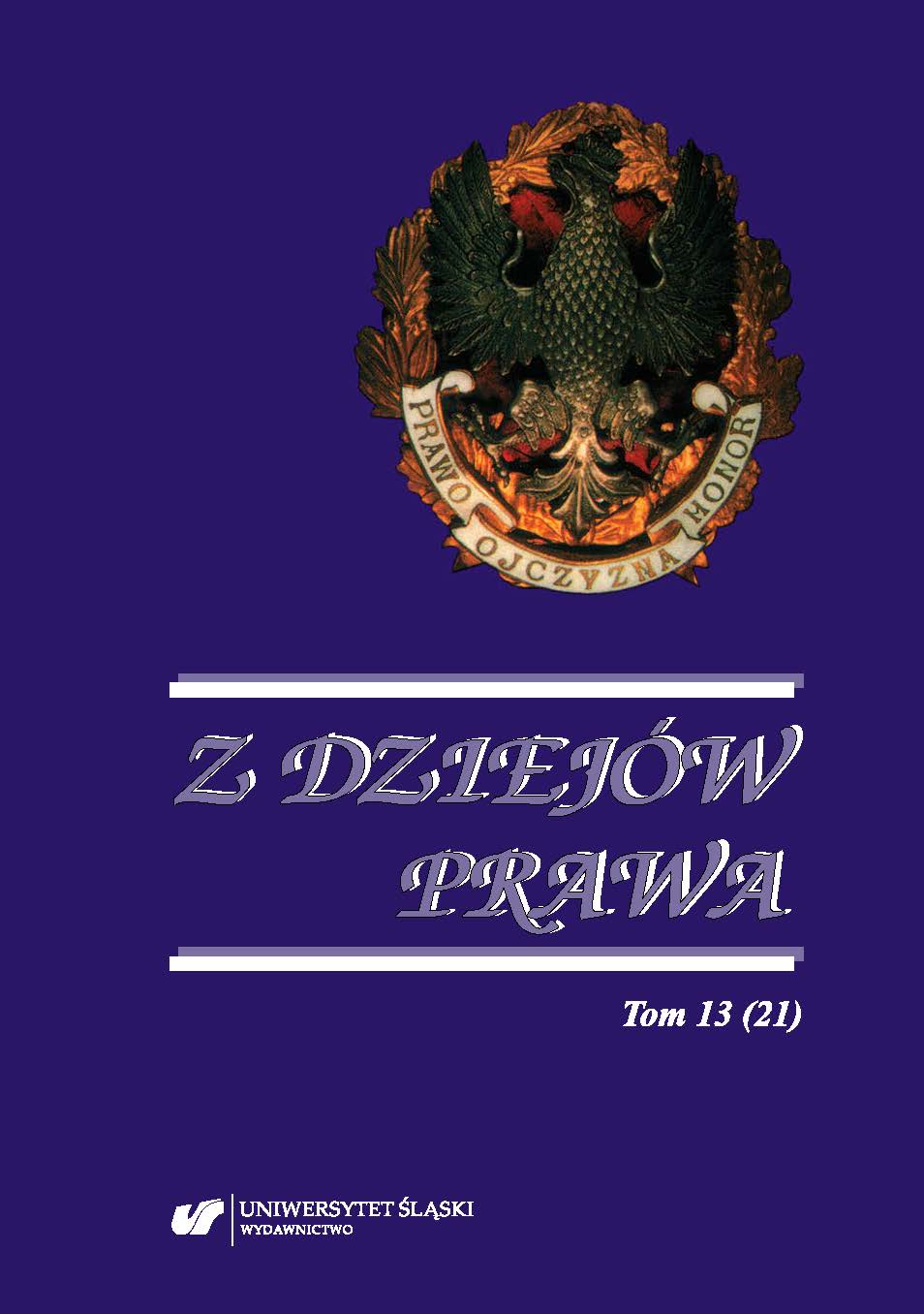Prawo w okresie rewolucji husyckiej
Law during the Hussite Revolution
Author(s): Daniel KorbelSubject(s): Law, Constitution, Jurisprudence
Published by: Wydawnictwo Uniwersytetu Śląskiego
Keywords: Hussite movement; Hussite revolution; law in the Middle Ages
Summary/Abstract: At the turn of the 14th and 15th centuries, a movement calling for the reform of the Catholic Church began to crystallize in the Kingdom of Bohemia. Based on the teachings of John Wiklif and later — John Hus, attempts were made to influence the church hierarchy at the grassroots level and convince them to make the necessary changes, and actually follow the doctrines they preached. Unfortunately, Hus' teaching was condemned, he was summoned to the Council of Constance, and despite having a safe-conduct voucher from the Emperor Sigismund of Luxemburg, he was burned at the stake as a heretic in 1415. This event led to the radicalisation of a large part of the population of the Bohemian Kingdom. The attempts to forcefully stop the growing religious, social and national turmoil led to the outbreak of a revolution in 1419, which lasted until 1437. This article is an attempt to present the Hussite programme and its practical implementation with regard to revolutionary change of the legal system. Which legal norms did the Hussites reject and why, and how did they want to replace them?
Journal: Z Dziejów Prawa
- Issue Year: 21/2020
- Issue No: 13
- Page Range: 57-76
- Page Count: 20
- Language: Polish

